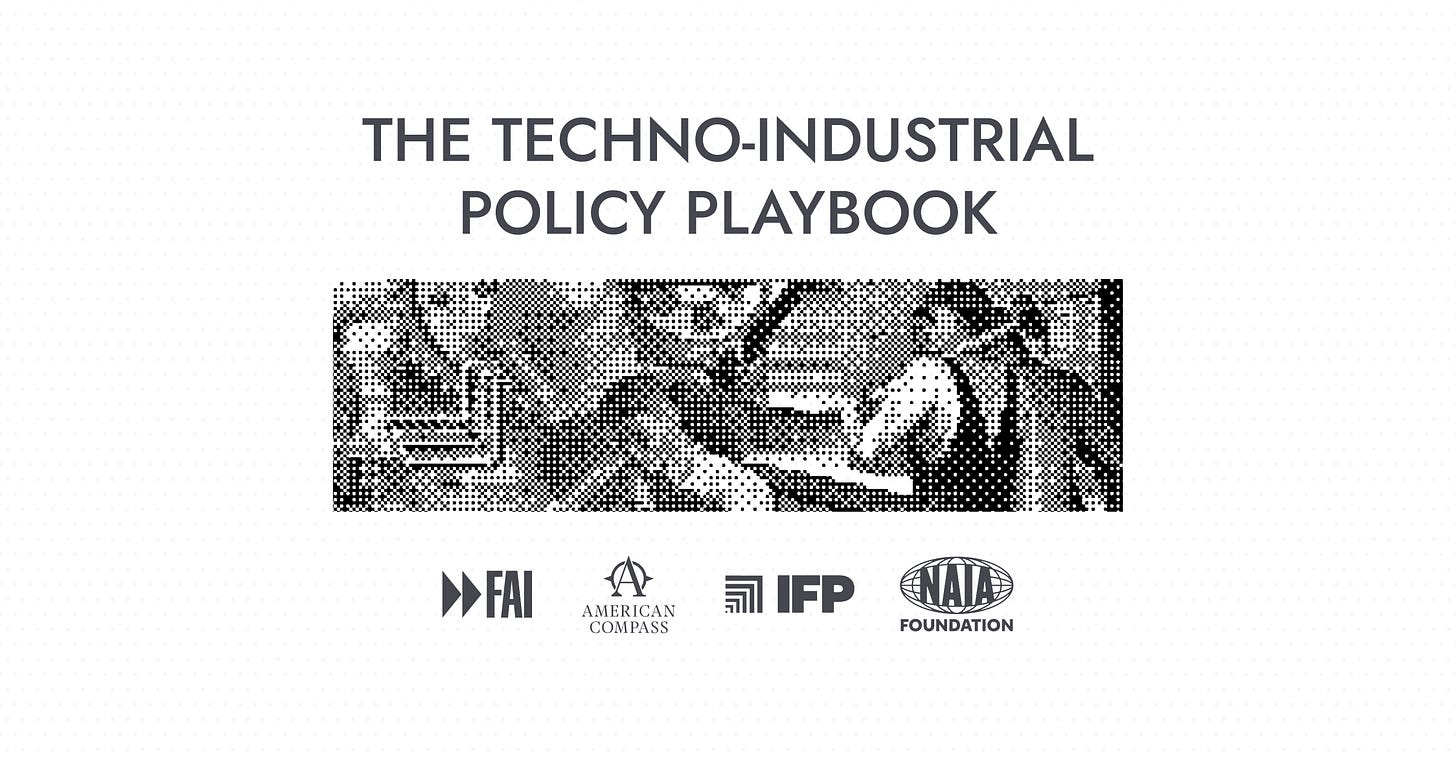Launching the Techno-Industrial Policy Playbook
A moment of your attention
Statecraft readers are disproportionately likely to be interested in a new project we’ve just launched at IFP: The Techno-Industrial Policy Playbook.
We’ve been working on it for the last six months, with some great partner orgs: the Foundation for American Innovation, American Compass, and the New American Industrials Alliance (NAIA) Foundation. It’s a set of 27 policies, ready to be implemented today, to kickstart America's techno-industrial renaissance.
For a printable transcript of this piece, click here:
You can read the foreword here, from friend Kelvin Yu. The playbook is focused on three areas: frontier science and technology, industrial power, and national security. Our organizations don’t agree on everything (IFP tends to be tariff-critical, American Compass tends to be tariff-friendly, for example), but we do agree there are immediate steps we can take to boost industrialization and innovation.
I think the playbook walks a good line on how we should think about lessons from Chinese industrial and technological success. We don’t want to imitate Beijing’s playbook — both because America has its own advantages to leverage, and because the Chinese model relies on intellectual property theft, forced tech transfers, and coercion (I would add slave labor to that list). What we do need is the same level of seriousness that China brings to its techno-industrial agenda.
Some of my favorite proposals:
My colleague Caleb Watney proposes “Launching X-Labs for Transformative Science Funding.” Currently, the NSF, NIH, and DOE give grants mostly to existing academic institutions, but some of the best biomedical and basic research is happening in new kinds of organizations — focused research organizations and new kinds of nonprofits. Caleb lays out a roadmap to fund those within existing authorities.
Sophia Brown-Heidenreich and Remco Zwetsloot write about pooled hiring authorities. We love pooled hiring and talked about them recently with David Lebryk.
Colleague Tao Burga writes on conditional export controls — TL;DR, you can geolocate advanced semiconductor chips with mostly existing hardware, and functionally gate exports to a country on whether or not the chips they receive end up in China or not.
Lastly, we are working on making more physical copies available (the first print run was delivered by hand to every Congressional office this afternoon).
The full collection (and downloadable pdf) can be found at www.rebuilding.tech.





So awesome to see this, congrats! I hope it gets the attention it deserves.
Great stuff, Santi!